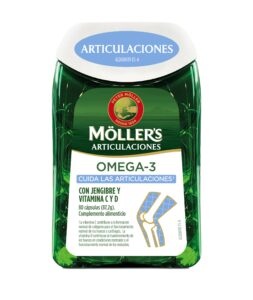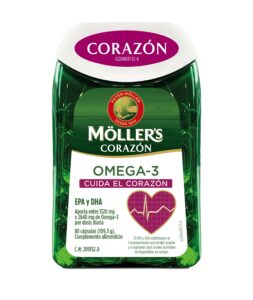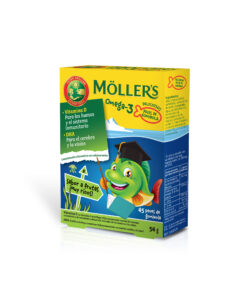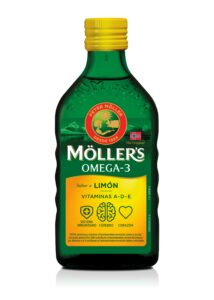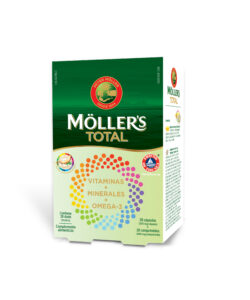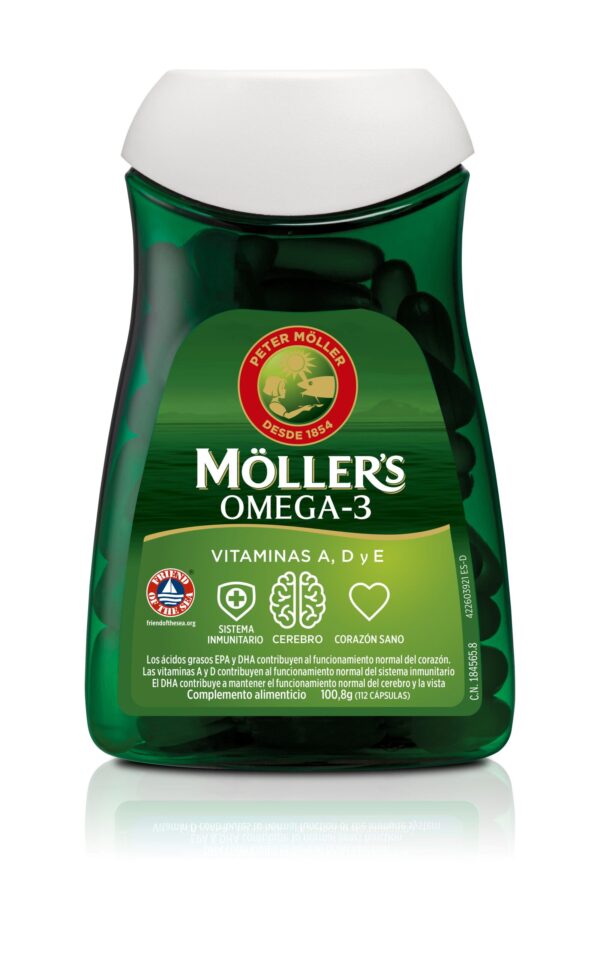Omega-3 is a health tradition in Norway going back centuries. It’s a story Möller’s has been proud to have been part of for more than 160 years.
Home » Omega-3 in Norway – a long tradition

Magic from the north – Norwegian proven healthcare since 1854
Omega-3 is the name given to a group of polyunsaturated fatty acids that are very beneficial to many functions in the body. In Norway, we have long been aware of the health benefits of omega-3, as well as the importance of a healthy balanced diet to meet the need for these essential fatty acids.
Omega-3 sources in Norway
Oily fish such as salmon, trout, herring and mackerel are clearly at the top of the list when it comes to foods rich in long-chain omega-3 fatty acids. Historically, this source is also the one Norwegians have relied on most since, with its long coastline, its population have been able to harvest the best fish the ocean has to offer. There are also healthy short-chain omega-3 fatty acids in some vegetables such as avocado, cereal products, vegetable oils, nuts and seeds, of which walnuts and chia seeds stand out as the best omega-3 sources in Norwegian grocery stores.
Omega 3 in Norway – then and now
As mentioned, it’s the sea and its rich fish life that people in Norway have used as their main source of omega-3, both historically and today. Supplements such as cod liver oil, which contains large quantities of omega-3 fatty acids, have also been used throughout history and are still used today. Cod liver oil is a natural product extracted from the cod liver. Extraction has been practised in Norway for hundreds of years, through constantly improved methods. A revolutionary innovation within cod liver oil production occurred in 1852, when founder of Möller’s Peter Möller, introduced his new method of gentle steam extraction to make cod liver oil for medical purposes in 1852.
Omega-3 produced in Norway
Shortly after Peter Möller became known for his steam extraction method, test production started at factories along the Norwegian coastline. Since 1854, Möller’s cod liver oil has been produced according to the same method in Norway, with the best Norwegian produce. Today, cod liver oil is produced at skrei (Northeast Arctic Cod) fisheries in Lofoten and Vesterålen and on our premises at Løren in Oslo, where production has been in progress ever since 1938. All Möller’s products are manufactured under strict guidelines to ensure the same high quality that we supply with pride to the Norwegian people.
Norwegian Omega-3 abroad
Norwegian Omega-3 is well recognised as a quality product outside of Norway’s borders. This reputation goes far back in time and is based on the quality that the produce, the production, and the end product – Norwegian Cod Liver Oil – stands for. Möller’s started its export business as early as 1928, when the first bottles of Möller’s Cod Liver Oil were sold in Finland. Since then, the number of export countries has increased steadily and today Möller’s products are sold in shops everywhere from the USA in the west to China in the east.
What is good health?
Do you have a good lifestyle?
Lifestyle simply means the way in which you live. Health and lifestyle go hand in hand. You might feel you have a good lifestyle if you are physically active, eat healthily and generally experience a sense of wellbeing. Conversely, if you want good health you should also have a good lifestyle.
Physical activity is the major contributor to a good lifestyle, but diet, drugs, stress, sleep and social conditions are also play an important role. Being able to use the body properly to avoid injury also affects lifestyle. Physical activity can also prevent depression and help you to recover more quickly from mental illness, both of which obviously affect your lifestyle.
Diet can be a difficult topic for many. Perhaps you eat too much or too little or maybe you find it hard to know what foods to combine to have a balanced diet. It’s also important to eat food that contains important vitamins, minerals and dietary fibre, omega-3 and antioxidants. On top of all this, you also need to get enough energy, protein and the correct fatty acids. The requirement for these nutrients changes throughout your life. When you are older you also have different requirements than children and younger adults. Women also have different requirements than men. Pregnant and breastfeeding mothers also have special requirements.
When you get older, you lose muscle mass and your body requires less energy and therefore less food. You may lead a less active life than you did before, which is why you require less food. However, your need for minerals, vitamins and other nutrients remains the same. Of course, there are plenty of healthy and active older people, but when you reach 70 to 80 years of age, it’s easier to become ill, especially during flu season.
Some steps you can take to improve your lifestyle and health are to:
- eat a healthy and varied diet
- stay active
- watch your weight
- avoid too much alcohol and don’t smoke
- get enough sleep
- think positive
- practise good hygiene
What is good quality of life?
The World Health Organisation (WHO) defines quality of life as a state where the individual can realise their potential, cope with normal stressful situations, work in a rewarding and positive way, and be able to contribute to others and society.
Quality of life is a wide and somewhat diffuse concept that includes joy in, and a desire for, life. These are values that are rather felt than measured, which in turn are based on personal environment and choices. Quality of life doesn’t necessarily depend on being healthy or sick. It’s the moments between worries, sorrows, problems and ailments that matter. For example, if you have a chronic illness, a feeling of mastery can be important when talking about quality of life.
To sum up, quality of life is a combination of health, lifestyle, networks and social support. It’s about experiencing joy, meaning in life, satisfaction, security and a sense of belonging, as well as being able to use your strengths. It’s also about feeling interest in life, coping with everyday situations and a being committed to something or someone. If you have good quality of life, you will be able to cope better with the inevitable stressful situations in life.
Learn more
Exercise program for the elderly
Healthy Aging Healthy Bones
Healthy diet during pregnancy
Brain Healthy Aging
Good health, lifestyle and quality of life – What does it all mean?
Cod Liver Oil Healthy Aging
Get inspiration on our Instagram
This error message is only visible to WordPress admins
There has been a problem with your Instagram Feed.
